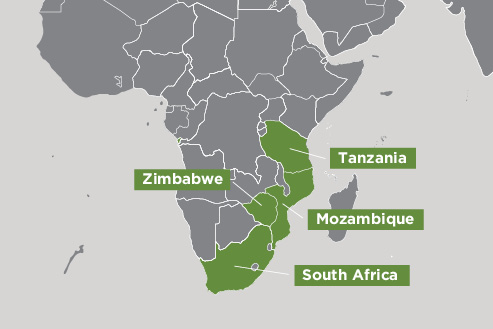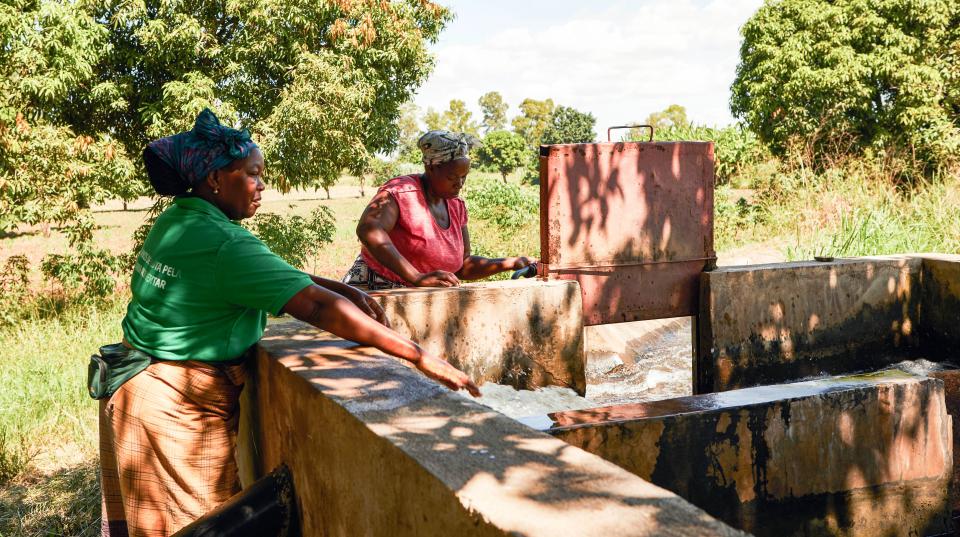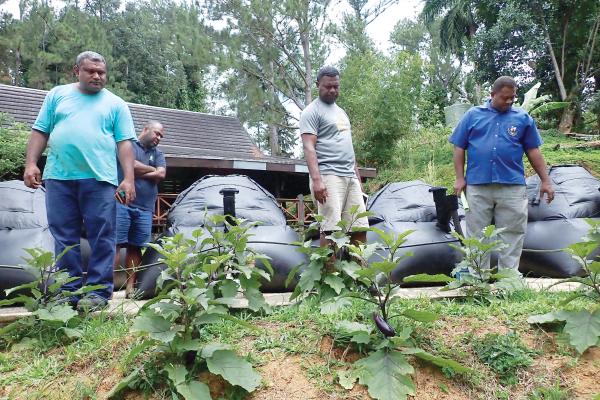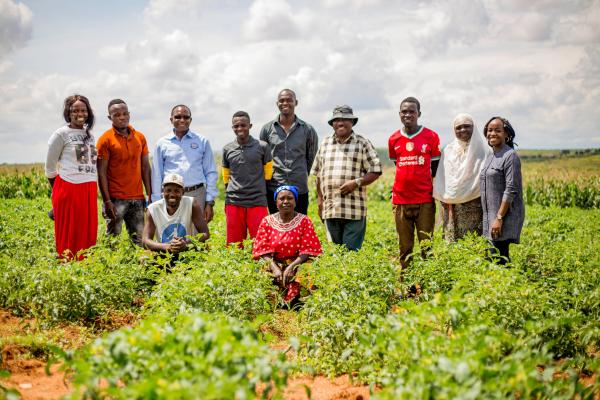Overview
This project aimed to improve the sustainability and profitability of smallholder irrigated agriculture across 3 nations in southern Africa.
Across Africa, governments and donors are investing in a massive expansion of irrigated agriculture, assuming this will reduce poverty for smallholder farmers and increase food security. Yet existing smallholder irrigation schemes on the continent have largely failed to significantly reduce farmer poverty, use the land and water sustainably or maintain the irrigation infrastructure. There is a complex array of reasons, ranging from farmers’ skills and markets to dysfunctional institutions.
ACIAR project (FSC/2013/006) Increasing irrigation water productivity in Mozambique, Tanzania and Zimbabwe through on-farm monitoring, adaptive management and agricultural innovation platforms (AIPs), found that AIPs combined with soil moisture and solute measuring and monitoring substantially increase the productivity and incomes of farmers and make irrigation schemes more self-sustaining.
The research explored how to expand successful interventions using user-friendly water monitoring tools and Agricultural Innovation Platforms (AIPs) in irrigation to reach more schemes and levels of governance. This was achieved by strengthening the skills of farmers, government, and private sector organisations.
Project outcomes
- Established 12 district-level Agricultural Innovation Platforms (AIPs), engaging 41 schemes, surpassing the target of 5 AIPs and 38 schemes.
- Installed 930 sets of sensors, with 754 farmers trained in their use, surpassing the target.
- Trained 276 government officers as AIP facilitators.
- Scaled out from existing AIPs in all countries, with low-cost means identified to extend AIP benefits at scheme scale.
- Held national-level innovation meetings in Tanzania and Zimbabwe to identify low-cost means of scaling out AIP benefits.
- Explored several strategic partnerships in 3 countries and internationally for irrigation funding.
- Identified various methods for using Chameleon and associated data to improve irrigation management at different scales, including national database integration and pilot deployments in provinces.
- Trained government agency staff in Mozambique, Tanzania, and Zimbabwe to map farm plots, with guidelines developed and scheme maps produced across the 3 countries.
- Published guides to better irrigation practices in English and translated into Portuguese and Swahili, with plans to share them further with stakeholders.
- Produced videos showcasing project activities in all countries, covering tool usage, project overview, and local cooking practices.
Summary of outcomes to date
2021-22
In FY22, the Transforming Irrigation in Southern Africa (TISA) project worked through 11-district scale Agricultural Innovation Platforms (AIP) engaging 41 irrigation schemes in Mozambique, Tanzania and Zimbabwe. Some 754 farmers are using soil-monitoring tools connected to the Virtual Irrigation Academy. 1,097 farmers are monitoring their profitability with field books, of which 676 have had gross margin assessments.
The project engages actors at scheme, district and provincial levels in AIPs, and with water and nutrient management to improve crop yields and profitability. More than 1,000 people have been trained. This has resulted in reduced irrigation frequency and duration, which have reduced production costs and improved crop yields. This has enabled collaborative activities to improve the maintenance and profitability of the irrigation farming systems.
The AIP processes are leading to a wide range of outcomes, for example collaborative mapping in Tanzania led to local banks issuing 615 loans to farmers.
Systematic end-of-project data collection has been occurring this year, using a variety of methods, including surveys, focal group meetings and interviews. Data cleaning and analysis are underway for reporting in FY23.
TISA activities have been presented in six journal articles and one book chapter with a further three articles under review. Eighteen conference papers were presented at four international events.
In FY23, the final year of TISA, we will focus on evaluating and extending the climate change adaptation benefits. As well as synthesizing and communicating research findings, and transitioning activities to provide ongoing benefits for farmers.









